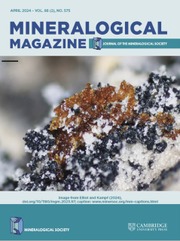Article contents
Integrating societal concerns into research and development (R&D) on geological disposal at the national level
Published online by Cambridge University Press: 02 January 2018
Abstract
The European InSOTEC project aims to identify remaining socio-technical challenges for the implementation of geological disposal of radioactive waste in European countries. Geological disposal has been recognized as the reference solution in radioactive waste management by the European Commission, which has set up the IGD-TP as a platform to foster exchanges between authorities on research and development (R&D) on this topic. This paper turns to the national level to analyse national R&D programmes on radioactive waste management (RWM) and particularly, geological disposal (GD) in order to assess to what extent there are national platforms that broaden interaction beyond an expert community. For this, we focus on identifying those practices and structures that reflect a degree of inter- and transdisciplinarity in the design and implementation of national R&D programmes. Our argument, embedded in the Science and Technology Studies (STS) literature, is that the way GD is framed by the research and policy community has important implications for the processes of developing and governing a technology. From our empirical case studies, we will explore the extent to which social-science research is integrated and the way stakeholders may have an impact on the development of R&D programmes. Overall, including social science research as an integral part in R&D programmes on GD and fostering collaboration between different types of knowledge in the R&D agenda-setting phase may help in the consideration of GD as a socio-technical problem, where the social and the technical are inextricably linked.
- Type
- Research Article
- Information
- Creative Commons
- Copyright © The Mineralogical Society of Great Britain and Ireland 2015. This is an open access article, distributed under the terms of the Creative Commons Attribution (CC BY) license (http://creativecommons.org/licenses/by/4.0/), which permits unrestricted use, distribution, and reproduction in any medium, provided the original work is properly cited.
- Copyright
- Copyright © The Mineralogical Society of Great Britain and Ireland 2015
References
- 3
- Cited by


